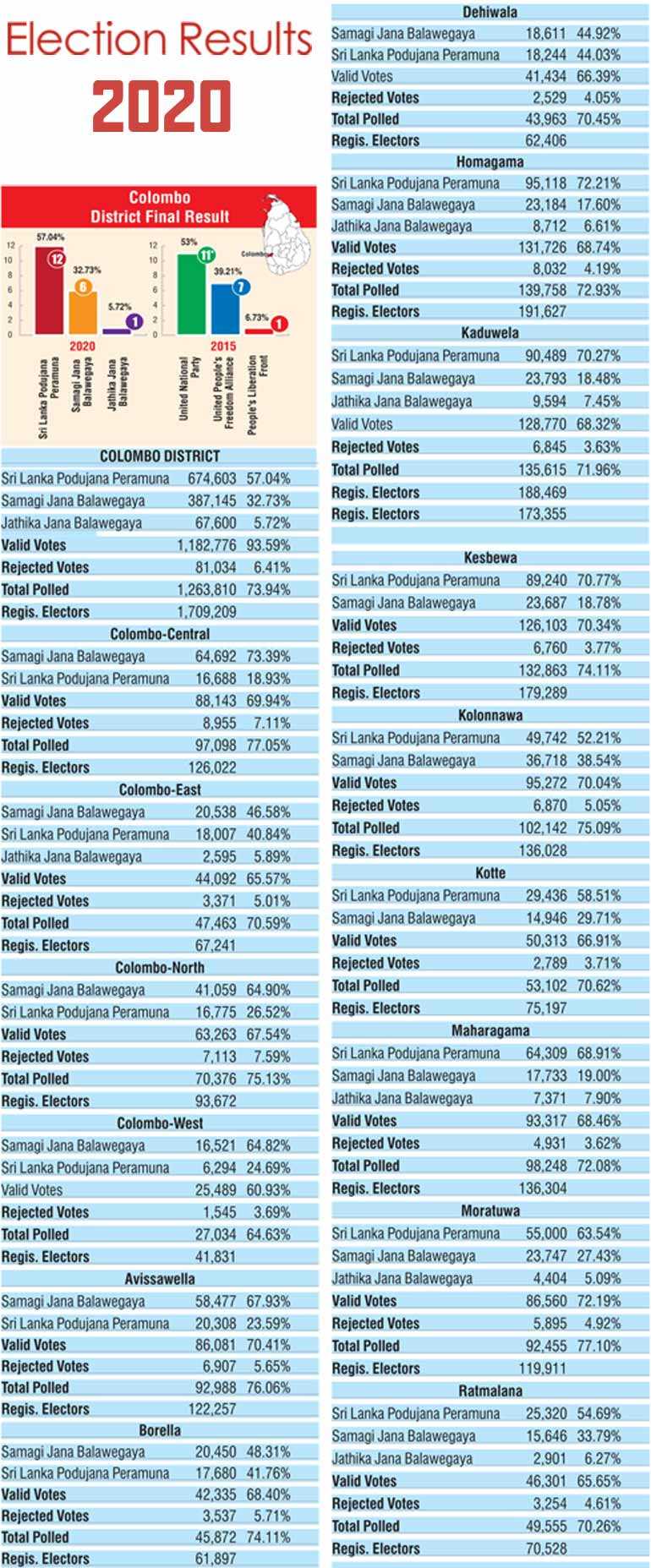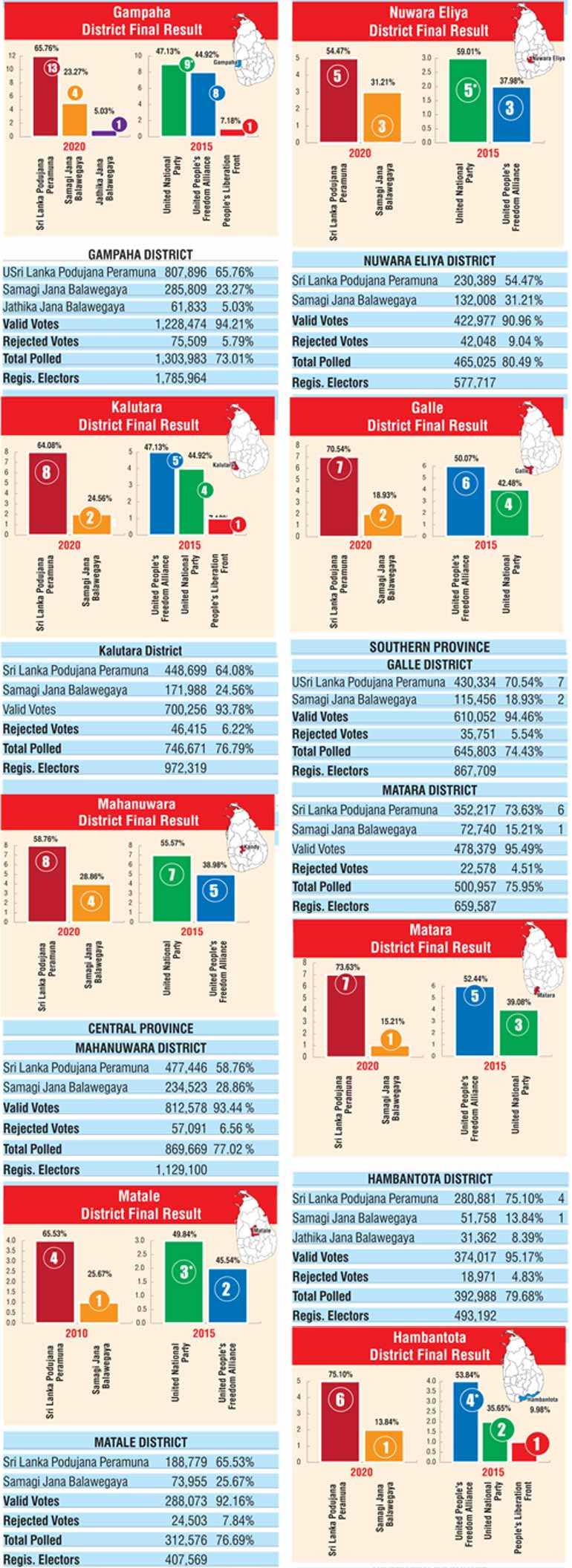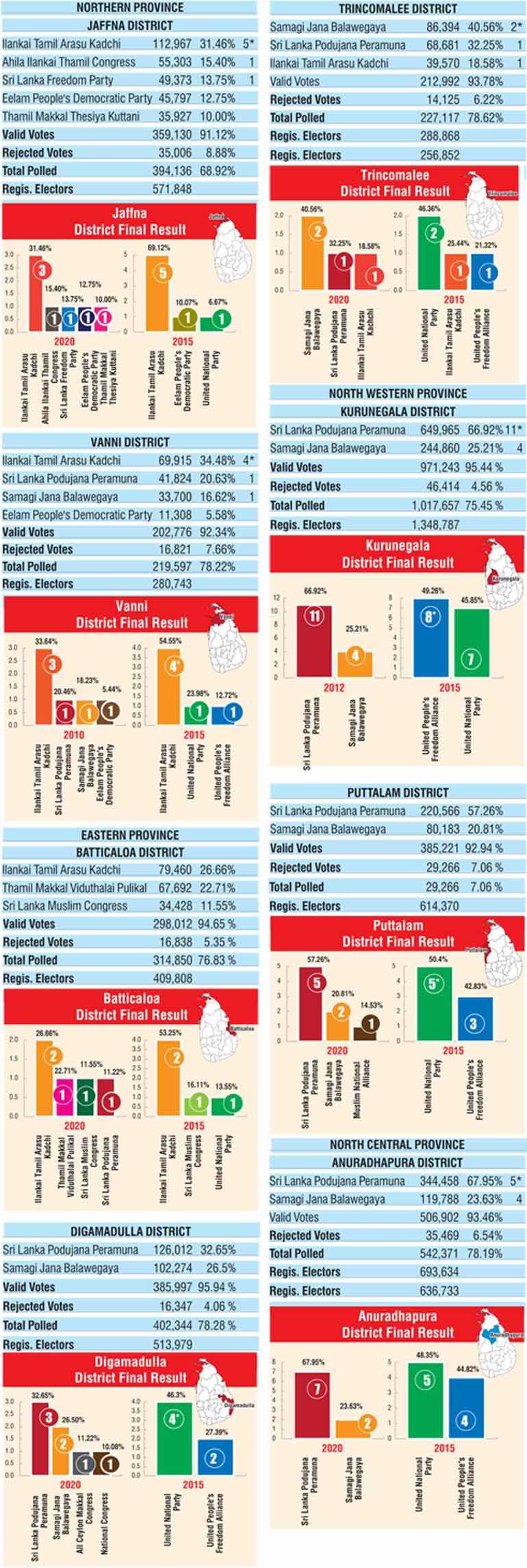Wednesday Feb 25, 2026
Wednesday Feb 25, 2026
Friday, 7 August 2020 00:00 - - {{hitsCtrl.values.hits}}
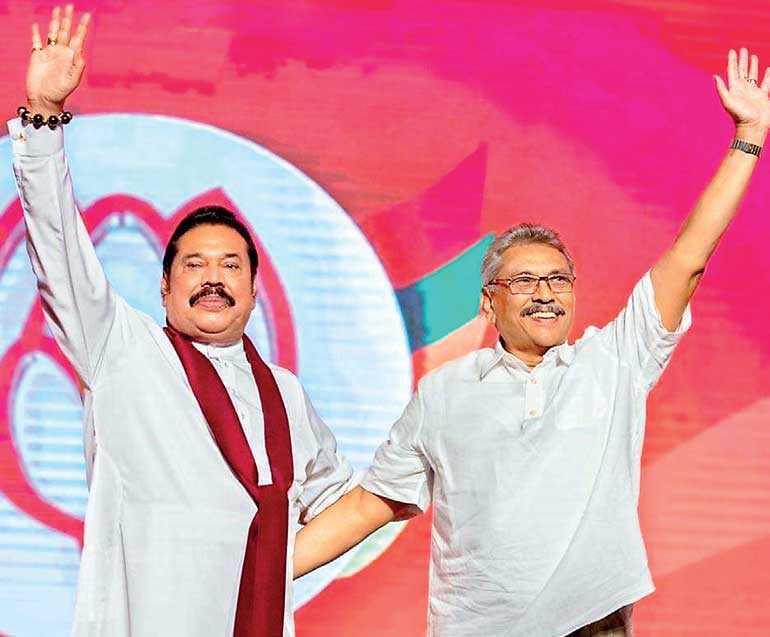
Brothers in arms: President Gotabaya Rajapaksa and Prime Minister Mahinda Rajapaksa - File photo
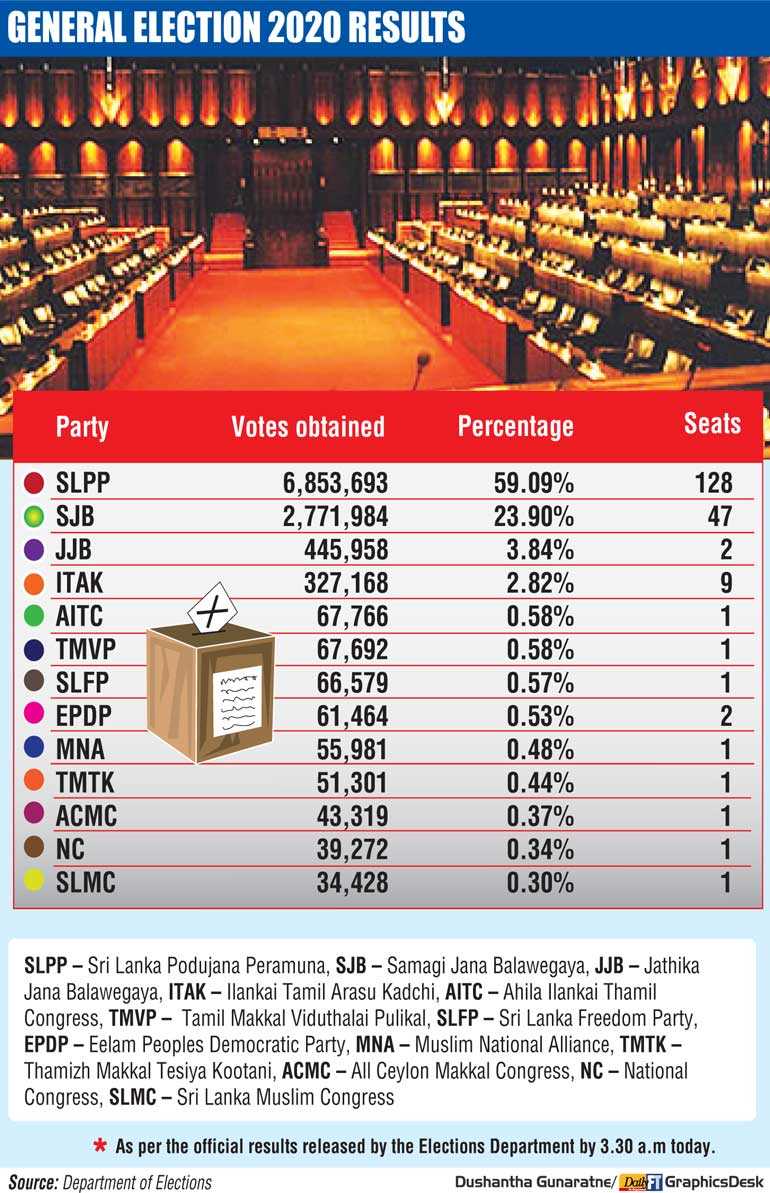
By Chandani Kirinde
The Sri Lanka Podujana Peramuna (SLPP), led by Prime Minister Mahinda Rajapaksa, secured a resounding victory in Wednesday’s Parliamentary Elections, by winning 146 of the 225 up for grabs, just four short of the coveted 150 seats needed to secure a two-thirds majority in the Legislature.
The SLPP swept all districts outside the North and East, winning with massive majorities in almost all electorates. The SLPP secured more than 6.3 million of the votes polled, with the SJB winning around 2.7 million votes.
The Samagi Jana Balawegaya (SBJ) led by Sajith Premadasa, which broke away from the UNP to contest the poll, was projected to win 54 seats, a distant second, but enough to secure the coveted post of Leader of the Opposition in the Legislature for Premadasa.
President Gotabaya Rajapaksa welcomed the resounding victory for the SLPP, and said the people’s mandate will be used to fulfil the promise made in his manifesto “Vistas of Prosperity and Splendour”, by obtaining the necessary parliamentary sanction.
Mahinda Rajapaksa will take oaths as Prime Minister before President Gotabaya Rajapaksa on Sunday.
This will be his fourth tenure as Prime Minister, the first being under President Chandrika Bandaranaike Kumaratunga in 2004. He held the post of PM briefly during the constitutional coup from October to December 2018, and was again appointed PM on 21 November 2019, after current President Gotabaya Rajapaksa was elected to office.
The Cabinet of Ministers is expected to be sworn in later in the week.
The United National Party (UNP), the country’s oldest political party, led by its leader Ranil Wickremesinghe, was wiped off the electoral map, expected to win only a single seat.
The UNP paid heavily for prolonged infighting, which led to a major faction in the Party led by Sajith Premadasa deciding to contest separately on the Samagi Jana Balawegaya (SBJ) ticket.
It is the first time since the UNP contested in the country’s first election in 1947 that the Party has shown such a poor showing. Early indications are that stalwarts of the UNP including Wickremesinghe, Ravi Karunanayake, and the Party’s General Secretary Akila Viraj Kariyawasam were among the losers.
The Illankai Tamil Arasu Kachchi (ITAK) also suffered a setback, winning only three of the seven seats in the Jaffna District. The four remaining seats in the Jaffna District went to four different parties, namely the Tamil People’s National Alliance or TMTK under former Northern Province Chief Minister C V Wigneswaran, the All Ceylon Tami Congress (ACTC) under Galan Ponnambalam, the EPDP, and the SLFP, which each secured one seat in the Jaffna district.
The Janatha Vimukthi Peramuna (JVP), which had six seats in the last Parliament, were down to three seats.
In the Colombo District, the SLPP secured 12 of 19 seats, the SJB won 6 seats, and the JVP-led National People’s Power (NPP) won one seat.
In the Nuwara Eliya district, the SLPP won five of eight seats, while the SJB won three seats.
In the Matale District, of the five seats on offer, four went to the SLPP, while the SJB won one.
Around 71% of the 16.2 million registered voters cast their vote at Wednesday’s election, down from 83% who voted at last November’s Presidential Election, but still substantial, given the concerns of the spread of COVID-19.
The SLPP will have control of the legislature for five years, as stipulated by the Nineteenth Amendment.
At the 2015 General Election, the UNP won 106 seats in the Legislature, while the United People's Freedom Alliance (UPFA) won 95 seats.
The Illankai Tamil Arasu Kachchi (ITAK) won 16 seats, the People's Liberation Front (JVP) won six seats, while the Eelam People's Democratic Party (EPDP) and the Sri Lanka Muslim Congress (SLMC) won one seat each.

